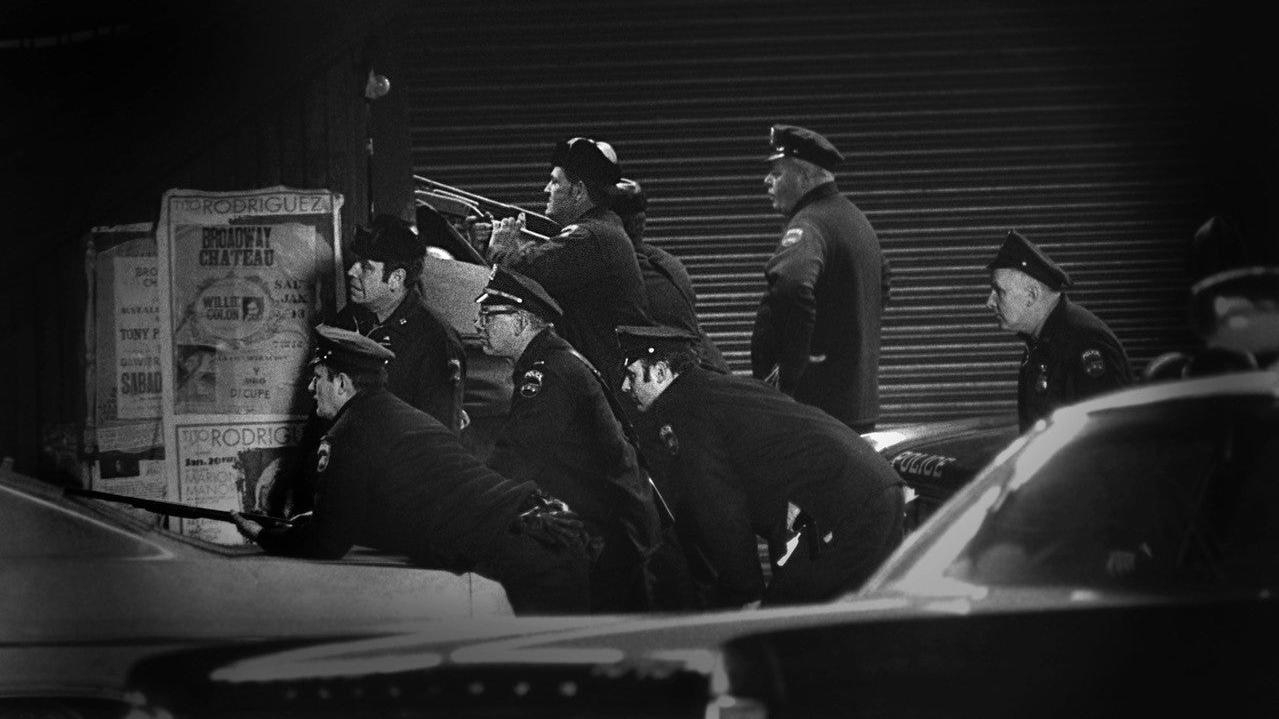The nuanced Hold Your Fire documents the real-time invention of hostage negotiations
A 1973 standoff between would-be thieves and the NYPD could have gone very wrong. Stefan Forbes' documentary reveals why it didn't.

In the Star Trek episode “A Taste of Armageddon,” William Shatner’s Captain Kirk gives a memorable speech to the head a planetary faction engaged in a seemingly intractable civil war. “We’re human beings with the blood of a million savage years on our hands, but we can stop it. We can admit that we’re killers, but we’re not going to kill today,” he says with the patented Shatner cadences. “That’s all it takes. Knowing that we won’t kill today.”
These words—so simple they could be mistaken for glib—work as a weird summation of Hold Your Fire, a remarkable and frank documentary from Stefan Forbes. It details a 1973 hostage standoff between a group of would-be thieves and the NYPD that could have gone far worse than it did, and essentially kickstarted the art of hostage negotiation as it exists today.
Forbes uses a blend of archival footage—some very French Connection-era images of blue police peacoats and city buses advertising WPLJ-FM radio—and interviews of surviving witnesses. At first blush, the incident seems straightforward, but with more scrutiny, nuances emerge. It becomes clear to any mature viewer that the initial impasse was due to serious lapses in judgment on “both sides,” but only one group is currently willing to admit they may have been even slightly in the wrong. (Spoiler: the conciliatory group, it may not surprise you, sure ain’t the cops.)
Here’s what went down. Four young Black men entered a Brooklyn sporting goods store with the intent of stealing guns. The police surrounded the place, so the robbers took the 11 people in the store (mainly minorities, including a pregnant woman) hostage. There was a shootout, leaving one cop dead. From there the standoff lasted nearly two days.
But rather than go in guns blazing, as had been the case at the recent Attica prison riot and the “Dog Day Afternoon” bank robbery, police tried a different tactic. Among their ranks were two men: Benjamin Ward, who was able to find common ground with the robbers and would go on to be the NYPD’s first Black commissioner, and Dr. Harvey Schlossberg, a detective on the force with a degree in psychology. (Wikipedia claims that he later coined the term “Stockholm syndrome.” How ’bout that?)
Schlossberg’s suggestions, like simply holding fire (the title of the movie!) and talking to the people inside, may seem obvious to us now, but as recently as 50 years ago that kind of thing was unheard of for a group infamous for brute force. It was a radical paradigm shift. As such, everyone survived the encounter after that first shootout (though many suffered grave psychological scarring), and some of the defendants have grown to do substantial work in the restorative justice movement after their extremely lengthy prison sentences.
As layers of the onion are peeled back, we learn why the four men were stealing guns. They were Sunni Muslims in early 1970s New York, where the more militant Nation of Islam had a strong grip in activist circles. This frequently led to violence, and there is reason to believe they needed arms to protect themselves. The film also gives context concerning just how brutal the NYPD was in Black neighborhoods at the time, with even less recourse than exists today for innocents caught up in the struggle.
Forbes interviewed two of the hostage-takers, and you can’t fake the kind of contrition you see on screen. This is compared with the almost cartoonish ex-cops, like the one wearing a Celtic Cross and New York Jets cap who has a bumper sticker reading “Not A Liberal” on his desk. There’s a palpable “shoot ’em all and let God sort ’em out” vibe coming off the retired police, but Hold Your Fire isn’t satisfied with simplicity. In stray comments, we learn about the culture of machismo at the NYPD, and the complete lack of mental health resources at the time, even for cops who watch their partners get their brains blown out. It’s not an excuse—there are no excuses for anyone—but there is context.
There are also great characters, like Jerry Riccio, the no-B.S. Brooklynite and owner of the store. He’s ready to talk smack about the four tough guys waving a gun in his face, and also about the idiot cops who nearly killed him during the shootout. Someone give this guy a radio show, he’s a natural.
Also fascinating is the moral center of the movie, Dr. Schlossberg. “He was a consummate Jew!” one of his colleagues says, probably as a compliment, citing his status as an intellectual and outsider. (Schlossberg, who died last year at the age of 85, kept a bust of Mr. Spock on a shelf in his extremely cluttered office.)
Looking back through the lens of a million cop show episodes, what Schlossberg does hardly feels like rocket science. But just because something seems like common sense doesn’t mean it is easy to get institutions to listen. Forbes’ film is a fine tribute to him, and a fascinating glimpse at a different, but not distant, past.